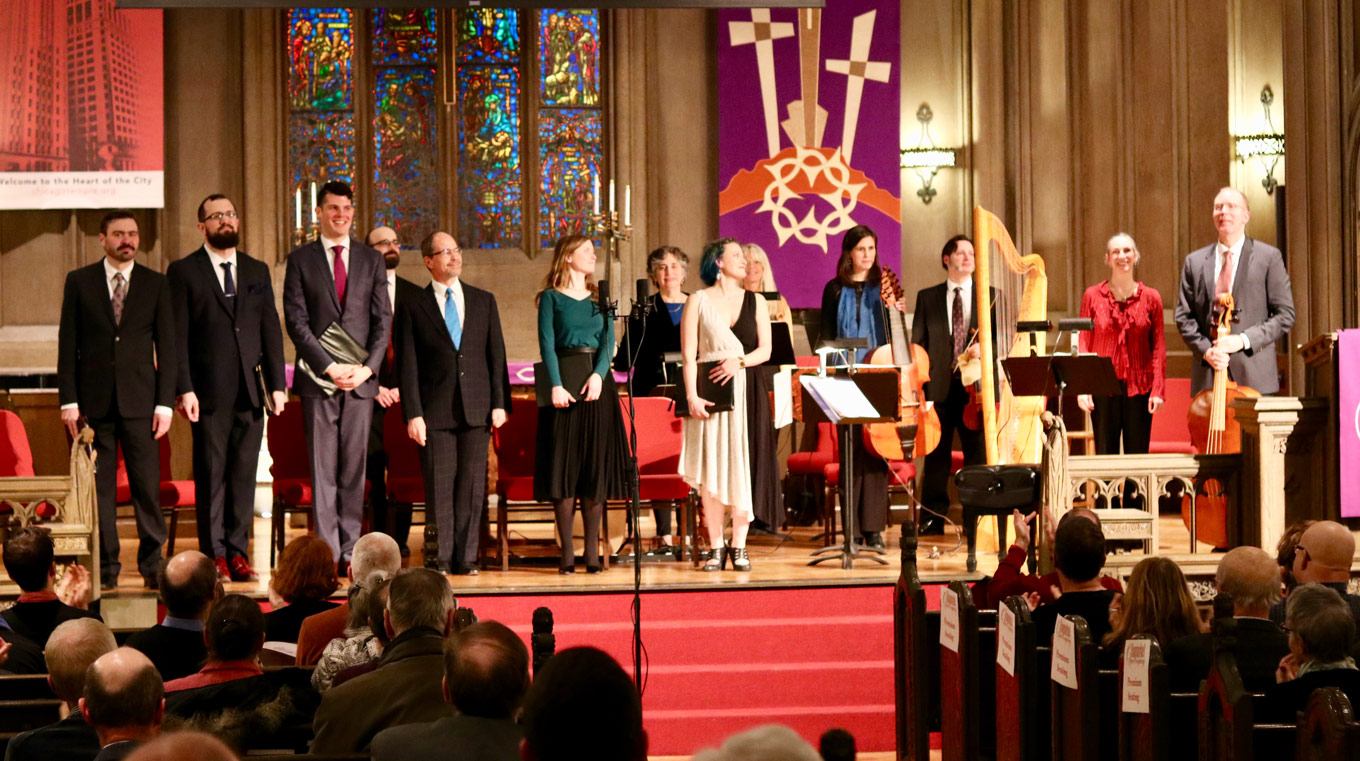
Palpable chamber music: Haymarket Opera's Lenten Oratorio
ReviewAs their annual Lenten Oratorio offering, the Haymarket Opera Company presented a concert performance of Luigi Rossi’s Oratorio per la settimana santa (Oratorio for Holy Week) at the Chicago Temple on March 8th. The oratorio dates approximately from the 1640s and is notable as one of the first musical settings of the Passion of Christ. The concert concluded with another Rossi work, Un Peccator Pentito (A Repentant Sinner) for the full ensemble.
Structurally the oratorio comprises two sections: the first pits Pontius Pilate against the masses who are clamoring for the release of Barabbas (a rebel detained by Roman governor at the same time as Jesus Christ) and the crucifixion of Jesus. In the second part, the Virgin Mary laments the death of her son among the demons of Hell. Throughout, the music alternated between ensemble sections in a Italian madrigal style, and solo airs for Pilate, a Demon, and Mary that seemed more like very lyrically sung accompanied recitative than full-blown arias.

The music of the crowd and demons, solidly sung by Kaitlin Foley, Carrie Henneman Shaw, Mischa Bouvier, Drew Minter, William Dwyer, and Mark Haddad, featured shifting homophonic and imitative textures and brisk dance rhythms. Musical highlights include the snappy setting of the word “Barabbas,” which formed a recognizable ritornello early on, and a flourishing melisma on the final word of part one (“festante”), that traveled brilliantly through each voice in succession. As Pontius Pilate, Mark Haddad was a convincing voice of authority who also brought a sense of human remorse to his portrayal of Pilate. Kaitlin Foley and William Dwyer stood out in the ensemble passages, leading the singers with nuanced phrasing.
On the whole, the chamber music sensibility cultivated by the performers was palpable. Singers and instrumentalists alike were keyed into a group sound and interpretation, and alternated between solo/ensemble styles and rapid tempo/meter changes with ease. The orchestra was a tight ensemble of two violins, lirone, theorbo, harpsichord, with a harp added in the second part. Haymarket Opera Company Artistic Director Craig Trompeter led this well-paced performance effectively from his bass violin, making a strong case for conductorless performance.
Upcoming later this month with Haymarket Opera Company: Haydn’s String Quartets, Op. 20, March 17, 7:30pm at St. Luke’s Episcopal Church, and Haydn’s The Seven Last Words of Christ, March 30, 7:30pm at Old St. Patrick’s Church.


Comments